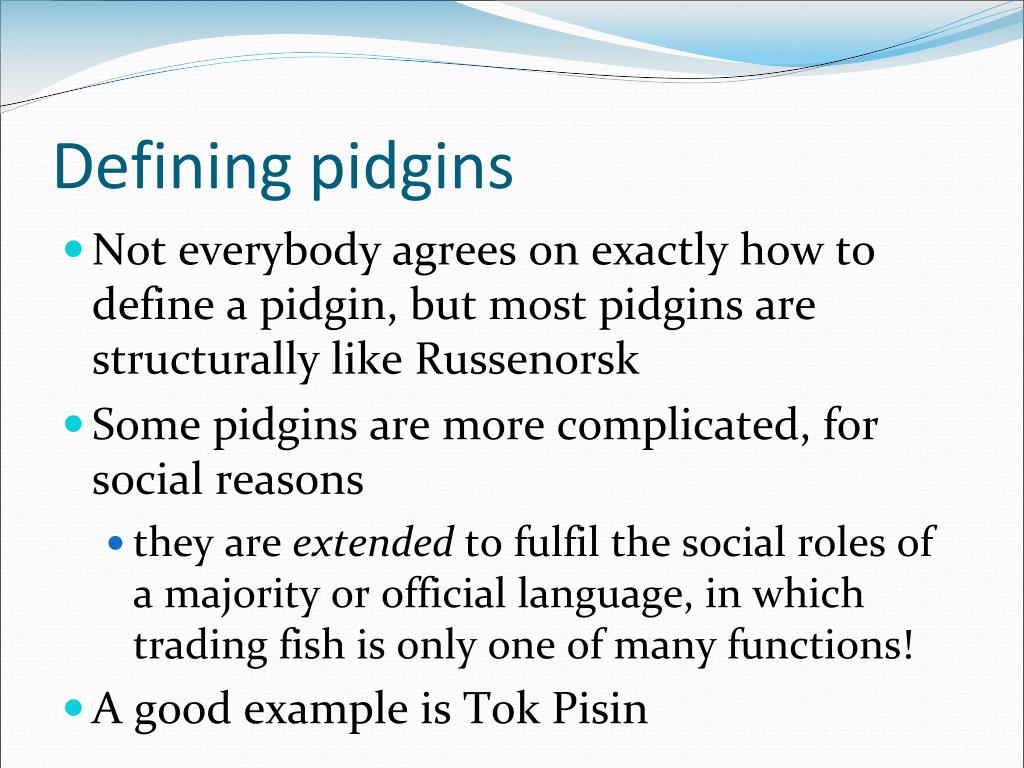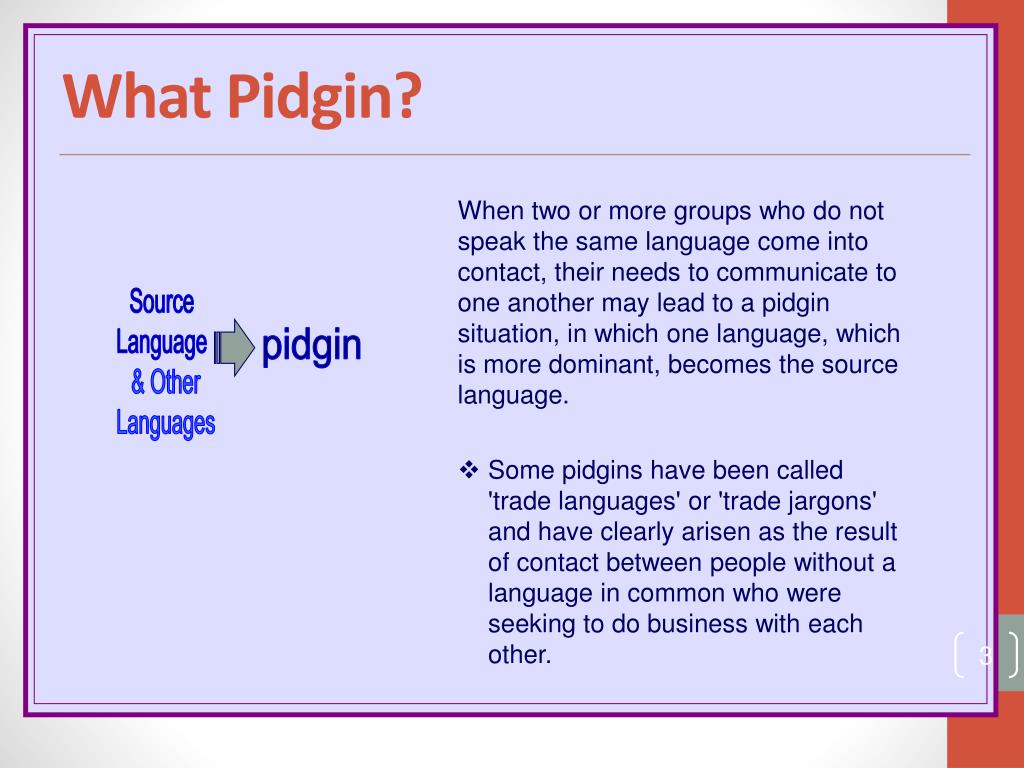

In this article, the author examines some of the reasons behind current practices and looks at whether they are justified according to research into language varieties and alternative educational programs that do make use of vernaculars such as Pidgin. Therefore it seems logical to avoid Pidgin at all costs, especially in the schools.

Most people in Hawai'i see a knowledge of standard English as the key to academic and economic success, and Pidgin as the greatest obstacle to the acquisition of this knowledge. Why is this? Part of the answer is that the acquisition of standard English is considered to be one of the most important goals of formal education. Yet, when it comes to language, many teachers and administrators seem to abandon these principles-especially with regard to Pidgin-and these practices are supported by parents and the general community. Most teachers would never think of putting their students down because of their ethnicity or socioeconomic status. Again, this is surprising, since teachers and educational administrators normally have the interests of their students at heart, and want to do what's best for them. In either case, Pidgin-speaking students are not allowed to express themselves in the language they feel most comfortable with. But even when there is no overt negative treatment, teaching is often done completely in standard English as if Pidgin did not exist.

In some cases, Pidgin is even denigrated, and its speakers constantly corrected.

Even more surprising, however, is that in many schools, Pidgin is frowned upon and the language is kept out of the classroom. Pidgin is integral to the development of modern Hawai'i and therefore it is surprising that there is nothing about it in the school curriculum. While some people still think of Pidgin as "broken English," many now realize that it is a distinct creole language, similar to others that have developed in multilingual environments, and call it Hawai'i Creole or HCE (Hawai'i Creole English). Like plate lunches, aloha shirts, and lei, Pidgin is an important part of local identity in Hawai'i.


 0 kommentar(er)
0 kommentar(er)
